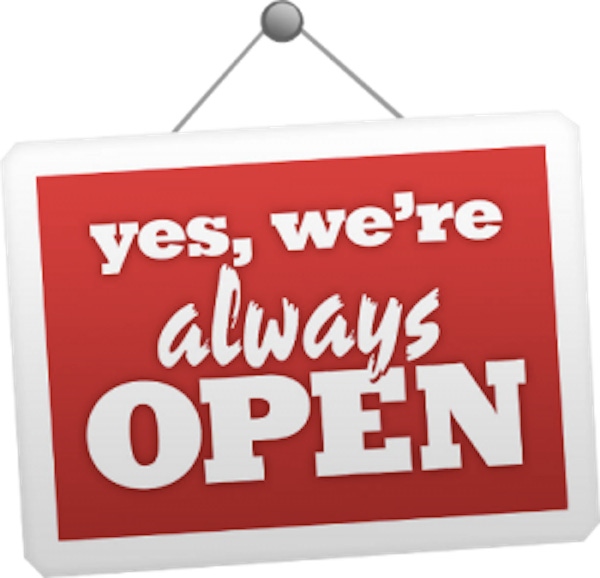MSPs can deliver clients a complete platform for business continuity, comprised of these four key pieces.
June 20, 2014

 Platforms mean profits. For MSPs, part of the promise of managed services is to deliver your clients complete solutions rather than mere point products. A total solution usually incorporates several different products, often from multiple vendors, into a cohesive whole, while more completely solving the client’s core business challenge.
Platforms mean profits. For MSPs, part of the promise of managed services is to deliver your clients complete solutions rather than mere point products. A total solution usually incorporates several different products, often from multiple vendors, into a cohesive whole, while more completely solving the client’s core business challenge.
Smart MSPs will uniquely brand their solution suites, while adding company-specific features and capabilities. This differentiated approach boosts a partner’s pricing power and gross margins.
The logic of products and solutions can be taken one step further however. To take solution bundles one step higher, MSPs can deliver clients a complete platform. While it is dangerous to slide into B-school lingo, a platform is an entirely different animal than a solution. Platforms are comprehensive and complete. A platform can be positioned as the solution for all clients, no matter their business challenge. Today, MSPs can leverage a host of different backup, disaster recovery, business continuity, and file sync products to deliver clients a true business continuity platform. Are you offering your clients a business continuity platform?
Here are the four key components of a business continuity platform:
1. File-level backup
File-level backup to the cloud is the first line of defense for protecting business data for SMBs. At its most basic level, file-level backup encrypts data and moves it from point A to point B and stores it in a geographically diverse location to defend against hardware failure, user error, malware infection, malicious hacker attack, device theft, natural disasters, or any incident that may destroy or render inoperable a computer or server.
File-level backup for laptop computers preserves mission-critical data in the case of hard drive failures or the loss or theft of a laptop. Users lose laptops all the time. And far too many laptops contain critical business-data that is neither synced to a company file-server nor backed up elsewhere. Cloud backup keeps the data safe in the cloud.
File-level backup is also useful for servers, such as file servers or database servers, and for protecting the data from line of business applications. Servers, while rarely stolen or misplaced, will experience hard drive failures or user errors, which risk the loss of mission-critical data such as customer lists, billing and accounting records, or other intellectual property. At a minimum, every business should have mission critical data backed up to the cloud to defend both against everyday disasters or those rarer incidents, such as fires, floods, or other natural disasters.
2. BDR and business continuity
Backup and disaster recovery, or BDR, is a class of solution that only protects business data, but the uptime and resiliency of a client’s servers, workstations, and laptops. BDR solutions deliver business continuity, the ability to keep critical computing infrastructure up and running no matter what the interruption. BDR solutions leverage image-based backup software to create a complete copy of an operating system, along with the applications, data, and application configurations on the system.
With a complete image, a server, workstation, or laptop can be virtualized and run locally or in a cloud environment. The image may also be used to quickly migrate a system to dissimilar hardware – a so-called bare metal recovery – to replace the downed, lost, or destroyed production system.
Most BDR class solutions often leverage an on-site BDR appliance, which serves as a local storage node for the backed up images and a place to virtualize and run the image from the downed system. This virtualization action may also be performed in a cloud environment on an emergency or as-needed basis. BDR class solutions safeguard not just the data, but the productivity of an organization.
3. Cloud file sync
Part of business continuity is protecting business data and mission critical computing systems. At another level, business continuity is about protecting the productivity of employees by allowing them to work on the business from anywhere, across any device, at anytime.
Cloud file sync solutions securely sync corporate data between servers, desktops, laptops, smart phones, tablets, and the cloud, empowering employees to work anywhere, at anytime. If a laptop gets stolen or lost on the road, all is not lost. All the road warrior needs to do is fire up their iPhone and all of their business files are there are their fingertips. If they need to do complex editing work, all of their files are synced to the web and can be edited locally at hotel business center computer and then uploaded to web.
With data securely shared between various systems, executives, knowledge workers and road warriors can elegantly deal with all manner of everyday nuisances and hassles that can prevent work from getting done and clients being served. Data is the life blood of business and cloud file sync helps deliver high availability and in turn business productivity by securely syncing content across all the devices business users need to stay connected.
4. Cloud-to-cloud backup
Despite the robust infrastructure in use by leading B2B cloud application providers, businesses today risk data loss, data fragmentation and compliance violations as more workloads move from on-premises servers to the cloud. The cloud computing revolution is allowing businesses of all sizes to run entirely in the cloud.
Unfortunately, businesses still face the risk of data loss or downtime in the cloud, since user error, accidental deletion or malicious employees pose risks to business data no matter where it resides. Cloud-to-cloud backup adds a layer of backup, instant search and business continuity to mass market B2B cloud applications, such as Office 365, Google Apps, and Salesforce. MSPs can now protect their client data, no matter where it lives, either on-site on a server, on a employees remote laptop, or in the cloud. Cloud-to-cloud backup is an essential pillar in delivering clients a business continuity platform.
True business continuity
eFolder is only the supplier that delivers MSP partners all of the essential ingredients needed to offer a business continuity platform. eFolder Backup powers file-level backup across any device. eFolder BDR provides both on-site or cloud-based recovery solutions. eFolder Anchor delivers business-class and secure cloud file sync and share. And eFolder Cloudfinder empowers cloud-to-cloud backup for leading cloud applications, such as Office 365, Google Apps, and Salesforce. What are you waiting for? Start offering your clients a true business continuity platform today.
 Ted Hulsy is VP of Marketing at eFolder, a cloud-based file sharing company.
Ted Hulsy is VP of Marketing at eFolder, a cloud-based file sharing company.
About the Author(s)
You May Also Like


